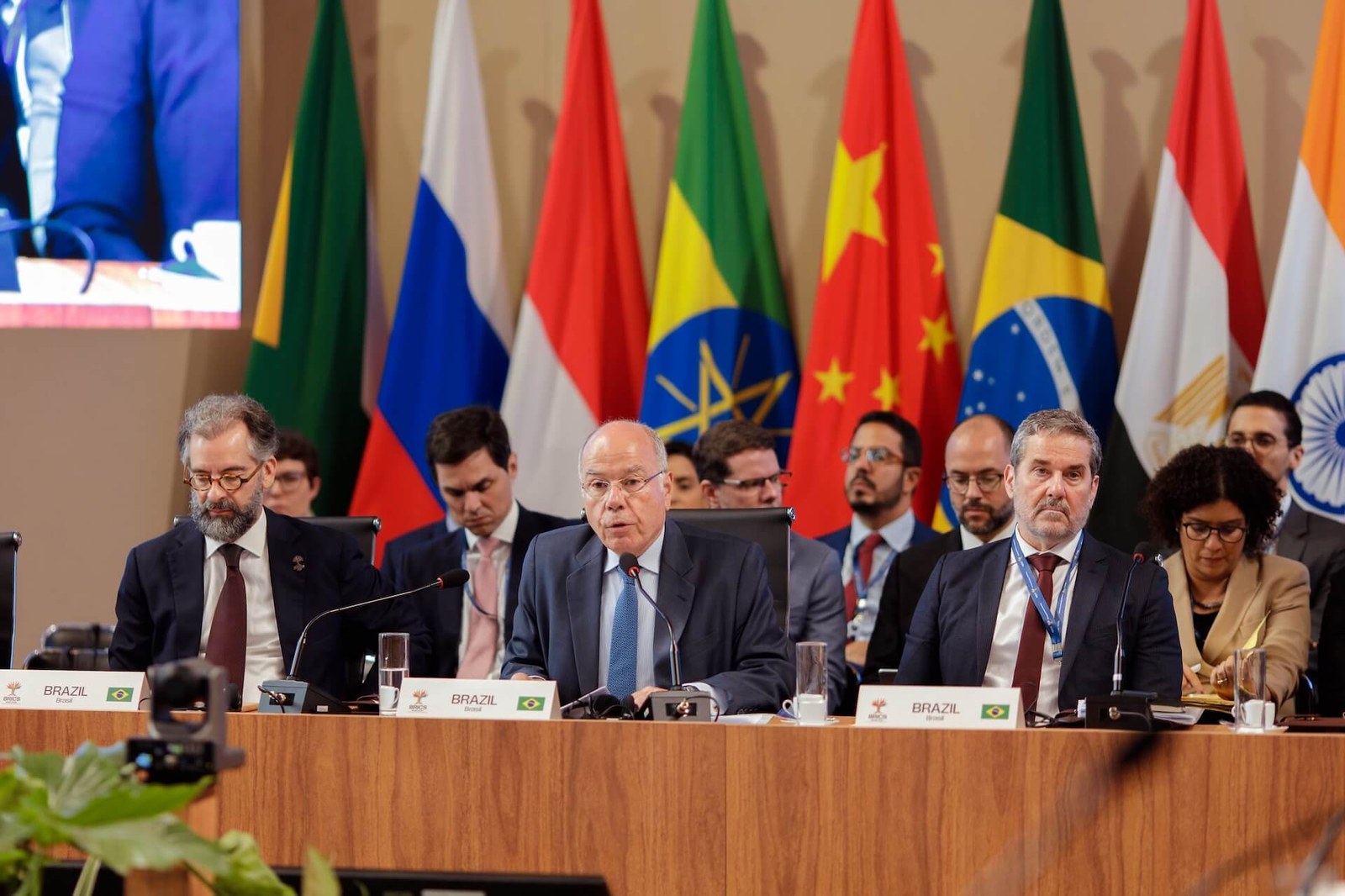BRICS Foreign Ministers convey positions on reforming global governance, strengthening multilateralism, and promoting peace
Event marks a historic milestone as the first official agenda of BRICS Foreign Ministers following the group's expansion. Brazilian Minister Mauro Vieira coordinated the proceedings

By Franciéli Barcellos de Moraes / francieli.moraes@presidencia.gov.br
The first day of the BRICS Foreign Ministers Meeting in Rio de Janeiro City, held this Monday, April 28, ended with one common belief: multilateral cooperation is the answer for the promotion of peace and development. Addressing global and regional crises; Reforming international institutions for a more inclusive and sustainable governance; and the Role of the Global South in strengthening multilateralism were the guiding themes for the three discussion panels.
During his opening statement, Brasil's Foreign Minister, Ambassador Mauro Vieira, highlighted the unique position of the group in primoting dialog and stressed the sovereign equality of the nations. “As a group, BRICS recognizes the strategic interests and the legitimate economic and security interests of each of its members, both in their respective regions and across the globe. This is part of our contribution to the fair distribution of power on global issues, which is required to enable us to reach peace, development, and sustainability. We defend diplomacy instead of conflict, and cooperation instead of unilateralism,” stated the Ambassador.
The meeting marks a historic milestone as the first official agenda of BRICS Foreign Ministers following the group's expansion. Considering that the full compositor lasted for fourteen years (Brasil, Russia, India, China, and South Africa), the increase in the number of member and partner countries formally implicated in the goals of Global South cooperation represents 300%. Tomorrow (29), the ministers are expected to finalize and publicize a joint declaration that will subsidize the BRICS 2025 Final Declaration. The document will be validated by the group's heads of State and government at the Leaders Summit in July, also in Rio de Janeiro.
In defense of peace
Another issue that marked Vieira's statement was a call for peace, pointing out conflict situations in several regions of the globe. In 2023, the world registered a total of 183 conflicts, the largest record in decades, with wars and confrontations within and among nations. This number represents an unprecedented peak in the last 30 years, coming close to the levels recorded during the Cold War.
“Human suffering must never be instrumentalized. BRICS must continue to uphold a global humanitarian system that is neutral, unpoliticized, and genuinely universal. The path towards peace is neither easy nor linear. But BRICS can and must be a force for the good, not as a confrontation bloc, but as a cooperation coalition,” stated the minister and meeting coordinator.
Highlights included the deterioration of the humanitarian security and economic situation in Haiti, the escalating tensions in Sudan and in the Great African Lakes region, the impact of the conflict in Ukraine, and the devastating landscape in the occupied Palestinian territories.
Regarding Ukraine, the minister emphasized the urgent need for a diplomatic solution that upholds the principles of the United Nations Charter and recalled the “Friends of Peace Group”, established in September last year by initiative of Brasil and China, during a High-Level Meeting of Global South Countries held in New York, United States.
In relation to the situation in Palestine, the Ambassador once again condemned the continuous obstruction of humanitarian aid to Gaza and the resuming of Israeli bombings. Vieira stressed the need to ensure the total removal of Israeli forces from Gaza, as well as the release of all hostages. Brasil is among the countries that signed the Two-States solution, which proposes a fully independent and viable Palestinian State within the 1967 borders, with East Jerusalem as its capital.
Bilateral opportunities
Gathering ministers from different countries of the world in one same place provides a unique opportunity to discuss high-level issues. In this sense, the BRICS Foreign Ministers Meeting has become an even more special venue. In this scope, Brasil – in its role as forum president and event convener – participated in several bilateral sessions, a strategic meeting model held between two State entities to advance cooperation on a variety of issues.
In this case, as the host, Brasil does not request bilateral meetings, but is at the receiving end of requests generally presented to the Ministry of Foreign Affairs by the embassies of the corresponding countries. During these meetings, country representatives have the chance to highlight the issues of greater relevance for their nations and to anticipate interventions that will be made during the general sessions, for example.
Yesterday, April 27, the day prior to meeting, Minister Mauro Vieira received his counterparts from Indonesia (Sugiono), Russia (Sergey Lavrov), Thailand (Maris Sangiampogsa), and Uganda (Abubakher Jeje Odongo); this Monday morning, April 28, he received Ethiopia (Gedion Timothewos).